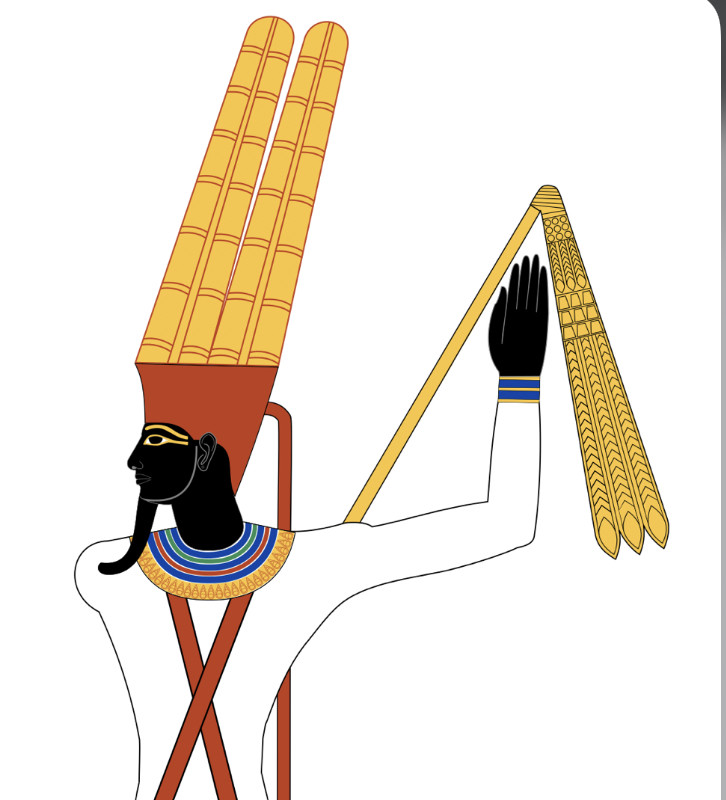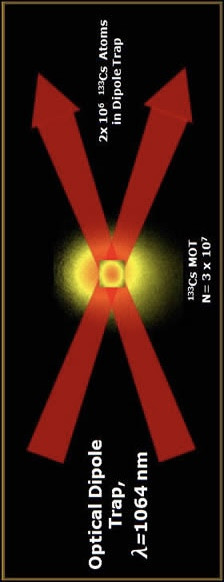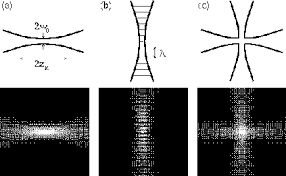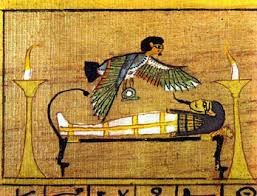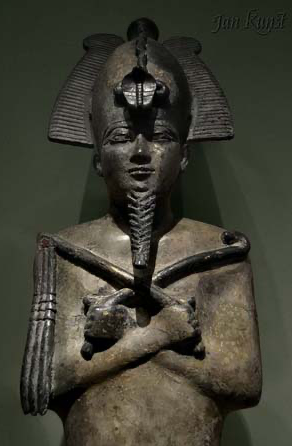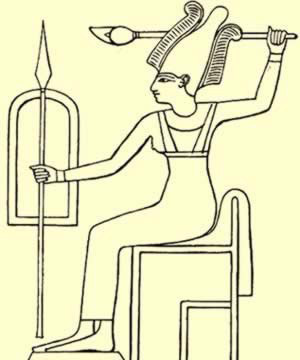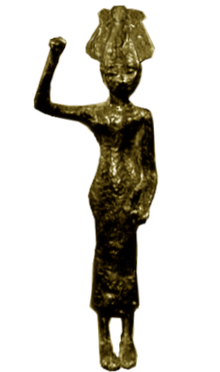The Elephantine papyri dating from the late sixth century BC indicate that Anat was one of the two goddesses worshiped at the Temple of Yahu (Yahweh) by the Jews on the island of Elephantine in the Nile.
A rare calendar, known as the Elephantine Calendar of Things, which dates to the reign of Thutmose III during the Eighteenth Dynasty, was found in fragments on the island.
Prior to 1822, there were temples to Thutmose III and Amenhotep III on the island. At that time they were destroyed during the campaign of Muhammad Ali, who had taken power in Egypt, to conquer Sudan. Both temples were relatively intact prior to the deliberate demolition.
The Elephantine papyri are caches of legal documents and letters written in Aramaic dating to sometime in the 5th century BC. These papyri document the presence starting in the 7th century BCE of a community of Judean mercenaries and their families on Elephantine who guarded the frontier between Egypt and Nubia to the south.
Following the Babylonian destruction of Jerusalem in the 6th century BCE, some Judean refugees traveled south and, in what may be called an “exodus in reverse,” settled on Elephantine. They maintained their own temple (also see House of Yahweh), in which sacrifices were offered, evincing polytheistic beliefs, which functioned alongside that of Khnum. The temple was destroyed in 410 BC at the instigation of the priests of Khnum.
The House of YHWH (or "House of Yahweh", Hebrew בית יהוה) is a phrase found in the Hebrew Bible and on at least one inscription, usually referring to a temple.
Most modern religious scholars focus primarily upon Solomon's Temple. However, there have been two other structures identified as a 'House of Yahweh'. One is located in Elephantine Egypt. The other structure suggested as a House of Yahweh is at Tel Arad.
In 1962 Yohanan Aharoni excavated at Tel Arad the only Judean temple recovered by archaeologists to date. The incense altars and two "standing stones" may have been dedicated to Yahweh and Asherah.
S T A N D I N G S T O N E S
Meritaten Tasherit, which means Meritaten the Younger was an ancient Egyptian princess of the 18th Dynasty. She is likely to have been the daughter of Meritaten, eldest daughter of Pharaoh Akhenaten. Who her father was remains a matter of debate.
share
/ʃɛː/
verb
gerund or present participle: sharing
have a portion of (something) with another or others.
have another think coming — used to express the speaker's disagreement with or unwillingness to do something suggested by someone else.
Anat (/ˈɑːnɑːt/, /ˈænæt/), Anatu,[4] classically Anath (/ˈeɪnəθ, ˈeɪˌnæθ/; Arabic: عناة Hebrew: עֲנָת ʿĂnāth; Canaanite: 𐤏𐤍𐤕 ʿAnōt; Ugaritic: 𐎓𐎐𐎚 ʿnt; Greek: Αναθ Anath; Egyptian Antit, Anit, Anti, or Anant) is a major northwest Semitic goddess.

